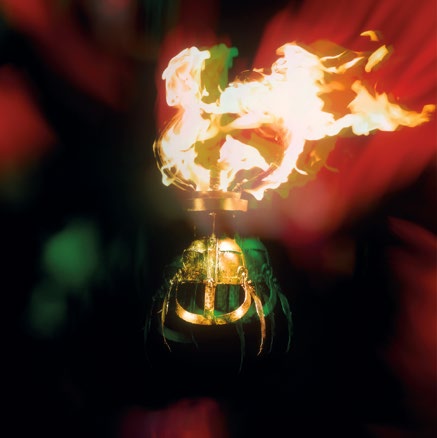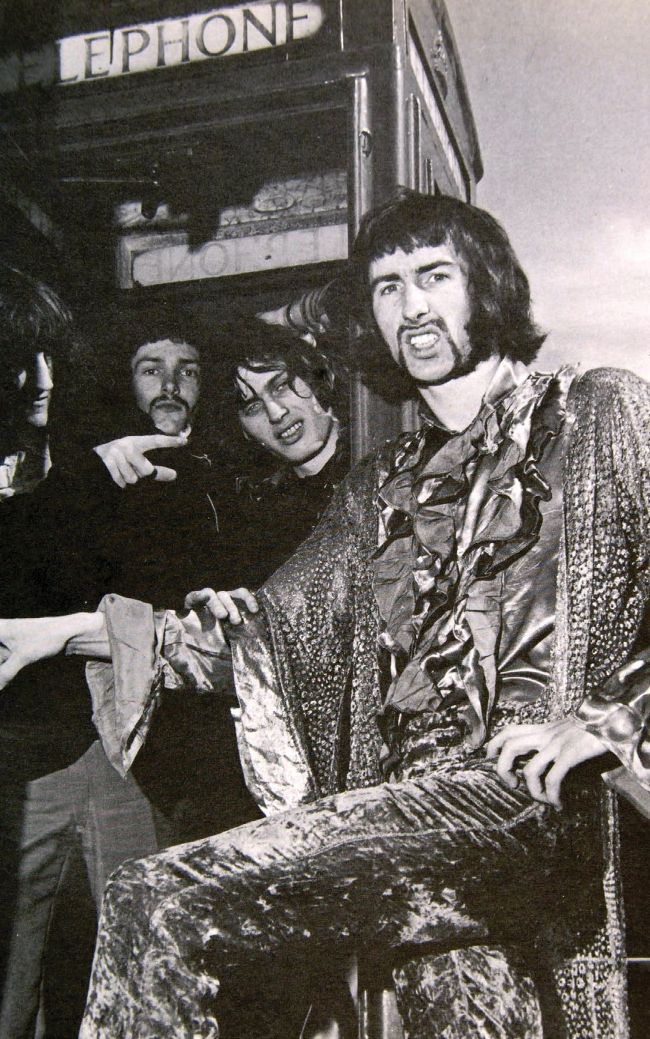THE PROG INERVIEW
Arthur Brown
Every month we get inside the mind of one of the biggest names in music. This issue it’s Arthur Brown. First coming to the attention of the world in 1968 with the international hit single Fire, he’s gone on to forge a wildly eclectic career that’s constantly pushed at the boundaries of both music and performance. Possessing one of the most extraordinary voices in rock, his theatrical stage persona has also been enormously influential on generations of artists, including David Bowie, Peter Gabriel and Alice Cooper. With his new album, Long Long Road, just released, the octogenarian looks back on 60 years of musical adventures.
Words: Joe Banks

GAB ARCHIVE/REDFERNS/GETTY IMAGES

Main: The Crazy World Of Arthur Brown in 1968.
Inset: Anyone brought marshmallows?
PRESS/HARVEY WALLER
The Crazy World Of Arthur Brown, the group he formed in 1967 with Vincent Crane (later of Atomic Rooster), are absolutely foundational to the development of progressive rock. The Crazy World spiced up their R’n’Bderived sound with classical and jazz influences, and in Brown had an utterly magnetic frontman with a commanding, multi-octave voice who was part-shaman, part-preacher. Even today, there’s a genuine frisson to those performances of Fire on Top Of The Pops and This Is… Tom Jones – in his flaming helmet and robes, Brown cuts an almost demonic figure.
But the Crazy World was just the start of Brown’s journey. In 1970, he formed the experimental, avant-rock troupe Kingdom Come before going solo and collaborating widely with artists including The Who, Hawkwind, Robert Calvert, The Pretty Things, Alan Parsons, and Klaus Schulze. He has also been a carpenter and a counsellor. The 21st century has seen him return to the recording studio, with notable albums including Tantric Lover (2000), Vampire Suite (2003) and Zim Zam Zim (2013).
His latest, Long Long Road, released in June on his 80th birthday, is easily one of the strongest of his whole career, its bluesy psych/prog sound capturing that authentic early 70s vibe. It’s all the more impressive for having been recorded by just Brown and his long-standing, multi-instrumentalist collaborator Rik Patten – and Brown’s voice still sounds amazing (it’s all down to meditation and daily vocal exercises, apparently).
Just as Long Long Road looks back over Brown’s life, so Prog now joins him on a trip down a particularly crazy version of memory lane.
“Klaus Schulze said, ‘I’m about to record my next album, Dune, from the Frank Herbert book, would you like to come over?’„
How did you develop your singing style?
I always had a good voice and my parents wanted me to go into the church choir, but I didn’t want to do that. Instead, I first started singing in a trad jazz style, then switched to singing with a modern jazz quartet. I also had classical singing lessons. But what I was listening to on record were people like Jimmy Witherspoon and Big Joe Turner, who had a different kind of tone and much bigger voices. So when I started singing more R’n’B and commercial style of songs, I had to relearn my breathing. After a couple of years playing with various mod bands, I was able to go between these voices.